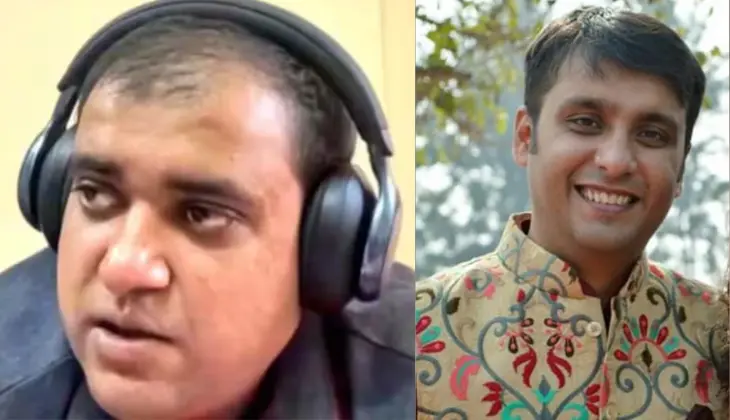Dissociative disorders are a category of mental health conditions characterized by a profound disconnection between different aspects of a person’s consciousness and identity. This disconnection can serve as a coping mechanism in response to overwhelming stress, trauma, or emotional distress. While dissociation is a natural defense mechanism, in dissociative disorders, it becomes more pronounced and disruptive to daily life.
These disorders are relatively rare, but they can affect anyone, regardless of age, gender, or background. They often stem from traumatic experiences, particularly those occurring during childhood. It’s crucial to understand that individuals with dissociative disorders are not faking their symptoms; they genuinely experience the distressing effects of dissociation
Types of Dissociative Disorders
Dissociative Identity Disorder (DID)
Formerly known as Multiple Personality Disorder, DID is perhaps the most widely recognised dissociative disorder. It involves the presence of two or more distinct personality states, each with its own identity, memories, and behavior. These alternative personalities, also known as “alters,” can vary significantly and might not be aware of each other.
Triggers for DID are often linked to severe childhood trauma or abuse, making therapy and support crucial for healing. Symptoms can include memory gaps, identity shifts, mood swings, and amnesia. The goal of treatment is to integrate these separate identities into a cohesive sense of self.
Depersonalisation-Derealisation Disorder (DP/DR):
This disorder encompasses two related experiences:
- Depersonalisation: Individuals with depersonalisation feel detached from their own body or thoughts. It’s like watching oneself from the outside.
- Derealisation: Those experiencing derealisation perceive the external world as unreal or dreamlike. Everyday objects and surroundings may appear distorted or strange.
These symptoms can be persistent and emotionally distressing. They often arise in response to stress, anxiety, or trauma. Treatment involves therapy and learning grounding techniques to reconnect with reality.
Dissociative Amnesia
Dissociative amnesia involves significant memory loss, particularly regarding traumatic events. There are different types of dissociative amnesia:
- Localized: Loss of memory for a specific period or event.
- Selective: Forgetting certain aspects of an event while remembering others.
- Generalised: Complete memory loss, often extending to one’s identity and life history.
- Continuous: On-going memory gaps that affect the present.
Dissociative amnesia typically arises as a response to traumatic experiences. Treatment involves therapy aimed at recovering lost memories and addressing the underlying trauma.
Common Symptoms across Dissociative Disorders
While each disorder has its unique features, there are common symptoms that individuals with these disorders may experience:
- Memory lapses or blackouts, which can be frightening and disorienting.
- Feeling like you’re watching yourself from outside your body, leading to a sense of disconnection.
- Unexplained identity shifts, where you may suddenly feel like a different person.
- Sudden mood swings or emotional numbness that can be confusing for both the individual and those around them.
- Difficulty concentrating due to the mind’s tendency to wander or dissociate.
- Confusion about personal history, making it challenging to piece together one’s life story.
- Frequent daydreaming or spacing out, which can interfere with daily tasks and responsibilities.
Coping Strategies and Treatment Options
Managing dissociative disorders requires a combination of therapeutic approaches and coping strategies:
- Psychotherapy: Talk therapy, particularly cognitive-behavioral therapy (CBT) and dialectical-behavior therapy (DBT), can help individuals explore and manage their dissociative symptoms. Therapy aims to identify triggers, develop grounding techniques, and work toward integration in the case of DID.
- Medications: In some cases, medication may be prescribed to manage associated symptoms like anxiety and depression, which often co-occur with dissociative disorders.
- Grounding Techniques: Learning grounding exercises, such as focusing on the senses or using physical objects, can help individuals stay connected to the present moment during dissociative episodes.
- Supportive Networks: Building a support system of friends and family who understand the disorder can be invaluable. Supportive relationships can provide emotional assistance and encouragement throughout the recovery process.
Conclusion
In conclusion, dissociative disorders are complex mental health conditions that can have a profound impact on an individual’s life. However, with the right treatment and support, individuals can regain control of their lives and work towards healing. It’s crucial to seek professional help if you or someone you know experiences symptoms of dissociative disorders. Remember that recovery is possible, and there is hope for a better future.
At Solh, we recognize the significance of mental health, which is why we've curated a range of powerful self-help tools designed to enhance your mental well-being. Our offerings include journaling, goal setting, self-assessment tests, mood analysis, and an extensive library of enriching content for you to explore and learn from. Take charge of your journey towards personal growth and improved mental health with our comprehensive self-help resources.



